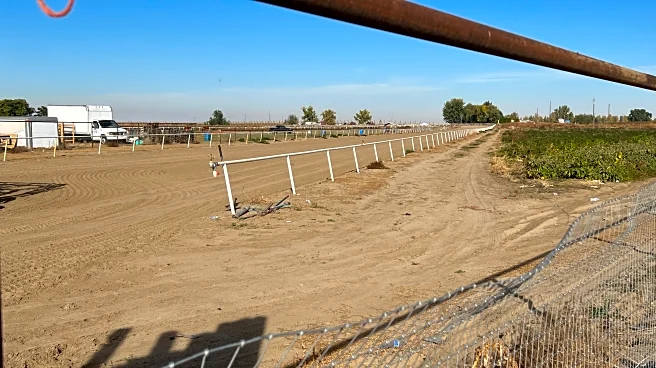What's Happening?
The BBC is reportedly planning a major transformation of its workforce to save up to £100M annually. Director General Tim Davie is spearheading Project Ada, which aims to reduce the number of non-content
jobs and invest in digital resources. The project could lead to outsourcing roles in HR, finance, legal, and operations to private companies. Named after Ada Lovelace, the initiative seeks to enhance the BBC's competitiveness against digital giants like YouTube and Netflix. Despite board support, no final decisions on redundancies have been made. The plan includes potentially spinning off a commercial unit for digital services like iPlayer and BBC Sounds. The transformation strategy has faced internal opposition, with concerns about its risks and rewards. Union Bectu has called for a pause in the plans, citing potential negative impacts on the creative workforce.
Why It's Important?
The BBC's transformation plan is significant as it reflects the broadcaster's efforts to adapt to the digital age and remain competitive. By reallocating resources towards digital content, the BBC aims to better serve its audience and compete with major tech companies. The potential outsourcing and job cuts could impact the UK’s creative industry, which relies on the BBC for skill development. The plan also comes at a time when the BBC is preparing for charter renewal talks with the government, making its strategic direction crucial for future funding. The initiative highlights the ongoing challenges traditional media organizations face in balancing public service obligations with the need for modernization and efficiency.
What's Next?
The BBC is expected to continue pursuing Project Ada despite internal opposition and calls for a pause. Tim Davie is committed to advancing the transformation in his remaining months as Director General. The broadcaster will likely engage with unions and stakeholders to address concerns and refine the plan. As the charter renewal talks approach, the BBC's strategy will be closely scrutinized by the government and public. The outcome of these discussions could influence the broadcaster's funding and operational model. Additionally, the potential spin-off of digital services may attract private sector investment, further shaping the BBC's future.










